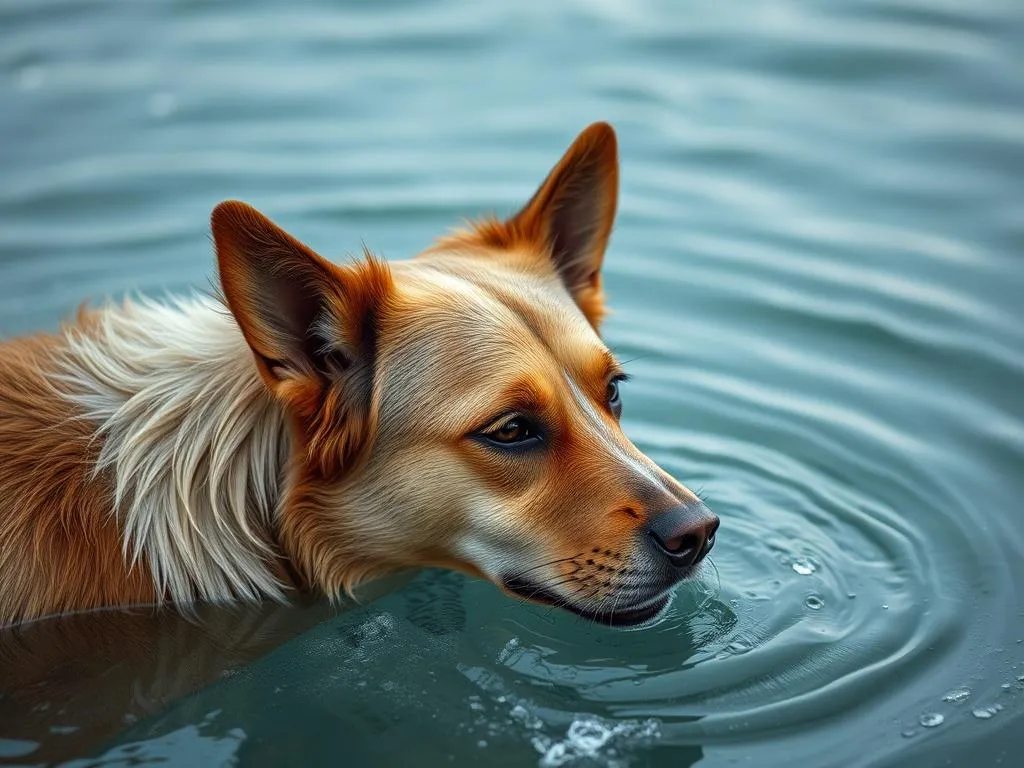
Understanding dog health care is crucial for every pet owner. One common question that arises is do dogs like cold water? This inquiry goes beyond mere curiosity; it touches on the well-being and hydration needs of our furry friends. Hydration is essential for maintaining a dog’s health, and understanding their preferences can help ensure they drink enough water, especially during warmer months or after vigorous exercise.
In this article, we will delve into canine physiology, explore whether dogs prefer cold water, discuss the benefits and risks associated with it, and provide best practices for keeping your dog well-hydrated.
Understanding Dog Physiology
Basic Canine Anatomy
Dogs are warm-blooded animals, and their normal body temperature typically ranges between 101°F to 102.5°F (38.3°C to 39.2°C). Unlike humans, dogs do not sweat to cool down; instead, they rely on panting and other mechanisms to regulate their body temperature. Hydration plays a pivotal role in this process, as it helps maintain a stable internal temperature and supports organ function.
How Dogs Perceive Temperature
Dogs have unique sensory perceptions that influence how they feel about their environment, including temperature. Their sense of smell and hearing is far superior to that of humans, but their ability to perceive temperature is different. Most dogs tend to feel more comfortable in moderate temperatures, and their temperature tolerance can vary significantly across breeds. For instance, breeds with thick fur, like Siberian Huskies, may tolerate cold temperatures better than breeds with short coats, such as Chihuahuas.
Do Dogs Like Cold Water?
Research on Canine Preferences
Studies on canine preferences regarding water temperature are limited, but anecdotal evidence suggests that many dogs enjoy drinking cold water. Factors that can influence a dog’s preference for cold water include their age, breed, and individual personality. Some dogs might find cold water refreshing, especially after exercising or playing outdoors, while others might prefer room temperature or even warm water.
Individual Differences
Every dog is unique, and preferences can vary widely. Puppies, for example, might be more adventurous and willing to try cold water, while older dogs or those with health issues may shy away from it. Additionally, specific breeds may have inherent preferences based on their natural environments. For instance, retrievers, bred for water activities, may enjoy cold water more than other breeds.
The Benefits of Cold Water for Dogs
Cooling Down After Exercise
One of the primary benefits of cold water is its ability to help dogs cool down after physical activity. Dogs can easily overheat, especially during hot weather or after intense exercise. Signs of overheating include excessive panting, drooling, and lethargy. Providing cold water can help lower their body temperature and aid in recovery.
Hydration Benefits
Cold water can sometimes encourage dogs to drink more. Dogs are more likely to sip on water that feels refreshing, especially after a long play session. It’s essential to ensure that your dog has access to fresh, cold water throughout the day, as proper hydration is crucial for overall health.
Skin and Coat Health
Cold water can also benefit your dog’s skin and coat. Regular exposure to cool water can help soothe irritated skin and reduce inflammation. This is particularly beneficial for dogs prone to skin issues or allergies, as it can alleviate discomfort and promote a healthier coat.
Risks and Considerations
Health Risks of Cold Water Exposure
While there are benefits to cold water, there are also potential health risks. Dogs can experience shock or hypothermia if exposed to very cold water for extended periods, especially if they are already overheated. It’s crucial to monitor your dog closely when they are in or near cold water, particularly in cooler climates or during winter months.
Signs of Discomfort or Distress
It’s essential to pay attention to your dog’s behavior. Signs that your dog dislikes cold water may include shivering, whining, or trying to escape the water. If you notice any of these signs, it’s best to remove your dog from the situation and offer them warm, dry shelter.
Alternatives to Cold Water
Warm Water Benefits
For some dogs, particularly older dogs or those with arthritis, warm water can be more appealing than cold water. Warm water can soothe aching joints and provide comfort, making it easier for them to hydrate. Additionally, it can be beneficial for dogs recovering from surgery or those with certain health conditions.
Room Temperature Water
Room temperature water is another excellent alternative that many dogs find appealing. It’s neither too hot nor too cold, making it a safe and comfortable option for hydration. To encourage your dog to drink more, consider providing fresh water multiple times a day and changing it frequently.
Best Practices for Dog Hydration
Providing Access to Water
Having access to fresh, clean water is vital for your dog’s hydration. Ensure that your dog has water bowls placed in various locations throughout your home, particularly in areas where they spend most of their time. Consider using spill-proof bowls or automatic water dispensers to keep water clean and plentiful.
Encouraging Drinking
To make drinking more appealing, you might try adding a little flavor to the water, such as low-sodium chicken or beef broth. Some dogs enjoy playing with ice cubes, which can also help keep them hydrated. These small changes can encourage your dog to drink more and stay hydrated.
Monitoring Water Intake
Keeping an eye on your dog’s water intake is essential. You can track how much they drink daily and look for signs of dehydration, such as dry gums, lethargy, or decreased appetite. If you notice any of these signs, consult your veterinarian for advice on how to address your dog’s hydration needs.
Conclusion
In summary, the question of do dogs like cold water is multifaceted. While many dogs do enjoy cold water, individual preferences can vary based on factors such as breed, age, and health. Cold water has several benefits, including helping dogs cool down, promoting hydration, and supporting skin and coat health. However, it’s essential to be aware of the risks associated with cold water exposure and to observe your dog for signs of discomfort.
Ultimately, the best approach is to offer a variety of water temperatures and monitor your dog’s preferences, ensuring they stay hydrated and healthy.









